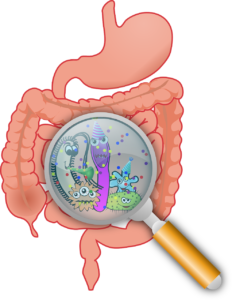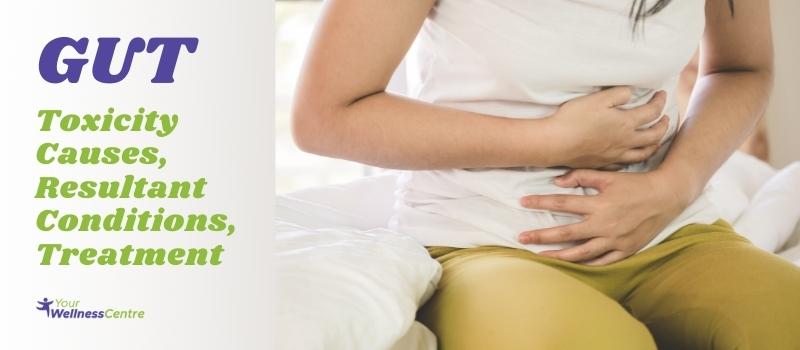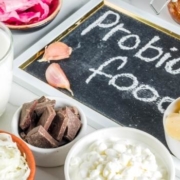Gut Toxicity Causes, Resultant Conditions, Treatment
 The identification of bowel toxicity followed by effective treatment is invaluable to many patients. Current dietary and lifestyle practices have produced an increasing number of health disorders caused by a malfunctioning digestive tract and toxicity that results from it. We start by looking at the causes of toxic bowel syndrome also referred to as Gut Toxicity.
The identification of bowel toxicity followed by effective treatment is invaluable to many patients. Current dietary and lifestyle practices have produced an increasing number of health disorders caused by a malfunctioning digestive tract and toxicity that results from it. We start by looking at the causes of toxic bowel syndrome also referred to as Gut Toxicity.
The causes of toxic bowel syndrome are as follows:
1. Perhaps your digestion of protein is not as good as it could be due to excessive consumption and lowered stomach acid production.
2. Intestinal overgrowth of anaerobic bacteria – (bacteria that don’t need oxygen to survive) often due to maldigestion.
3. Insufficient healthy gut flora. – aerobic bacteria are necessary for healthy gut function.
4. Maybe there’s something missing in the diet. Perhaps you lack things like glutamine, vitamins A, B12, folic acid, B5. These nutritional deficiencies will cause the breakdown of the gut barrier and its ability to recover.
It’s then possible to have what is now known as leaky gut. Here the Intestinal lining could be damaged resulting in holes that allow the entry of increased levels of molecules from the gut into the bloodstream. Because these molecules are able to cause unwanted actions you could end up with problems like poorly functioning liver or liver damage and widespread inflammation in the body. Irritation, inflammation, or damage to the intestinal mucosa results.
5. Oral antibiotic therapy: Many individuals report having Thrush after taking antibiotics. This is because of the Candida overgrowth that often occurs after antibiotic therapy. Besides this, antibiotics actually disturb natural bacterial growth, causing overgrowth of putrefactive and other bad bacteria.
6. Saccharin sweetened beverages: These can lower the production of important enzymes from the pancreas and then result in poor digestion. Undigested food particles pass to the colon, resulting in more bad bacteria and increased toxicity.
7. High-stress lifestyles can cause the slow down of digestive processes producing chronic poor digestion and bowel toxicity.
8. High sugar diets: When complicated with drugs, hormones and other immune disturbing practices can cause overproduction of not only Candida but also other putrefactive or bad bacteria.
9. Over-eating: this is too much for the digestive system and a lot of undigested food particles pass into the colon, producing more toxic or putrefactive bacteria.
10. Food sensitivities and allergies: For example, casein, gluten, yeast, and other chemicals can trigger immune responses from elements in the gut. The result is the food and allergic reactions experienced by some individuals.
11. Gastrointestinal infections and infestations (bacterial, fungal, parasitic, and viral): Produce severe diarrhea, breaking down the balance of normal gastrointestinal flora.
12. Autoimmune Diseases: For example, the New England Journal of Medicine has documented that the absorption of colonic bacteria from the small intestine produced an auto-antibody cross-reaction with receptors in the brain causing Myasthenia Gravis.
Symptoms of Gut Toxicity include:
Bloating, flatulence, tiredness after eating, brain fogginess, aches and pains in the joints, diarrhoea, abdominal cramps, drowsiness after meals, constipation, halitosis, fatigue, failing memory, constant tiredness, candida infections.
Conditions that may result from the above processes are:
- Gall stones and constipation
- Coeliac disease
- Diverticulitis
- Gastric Ulcers
- Hypochlorhydria
- Inflammatory bowel disease
- Crohn’s disease
- Pancreatic insufficiency
- Irritable Bowel Syndrome
- Scleroderma
The above list emphasizes the importance of identifying toxic bowel syndrome. The cascade of related health disorders that may occur as a result of toxic bowel syndrome dramatizes the importance of both assessment and treatment of this disorder.
Correction of toxic bowel syndrome is especially important to those patients requiring nutritional support to alleviate their health problems since toxicity can interfere with the proper utilization of nutrients.
To Reverse Gut Toxicity:
This requires specific antimicrobial or antiparasitic treatment, healing of the gut, and replacing the noxious bacteria with those which are beneficial to good health.
How Long will it take?
Treatment time depends on your response to our approach.
Removal of the toxicity takes could take from 2 weeks to 6 months. Really severe cases have been known to take between 1 and 2 years.
How Will You Benefit?
Freeing the gut of toxicity and improving leaky has far-reaching effects on your future health.
You will feel so much healthier, some clients describe a feeling of lightness, “I haven’t felt this good for at least five years” and “I just feel so much more energetic”, are frequent expressions of appreciation.
Contact us or ring 98799596 for more information or to make an appointment.





I really love your site.. Very nice colors & theme. Thank you!
Thanks, I have recently been looking for information approximately this topic for a while and yours is the best I’ve come upon till now.